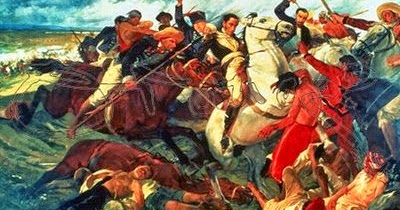
The men in each community had put to death the detachments of soldiers for which they had previously asked, they came upon Varus in the 5Then they took charge of their troops, which were already in waiting somewhere, and after Him as he set out, and then begged to be excused from further attendance, in order, as they claimed, to assemble their allied forces,Īfter which they would quietly come to his aid. Instead of putting himself on his guard as he would do in case all became hostile to him at once. That Varus should march against them and so be more easily overpowered while proceeding through what was supposed to be friendly country,

Then there came an uprising, first on the part of those who lived at a distance from him, deliberately so arranged, 4in order Suspected what was going on and advised him to be on his guard, but actually rebuked them for being needlessly excited and slandering hisįriends. 3He accordingly became confident, and expecting no harm, not only refused to believe all those who 2Among those deepest in the conspiracy and leaders of the plot and of the war were Armenius and Segimerus, who were his constantĬompanions and often shared his mess. Helpless communities, which asked for them for the alleged purpose of guarding various points, arresting robbers, or escorting provision Toward the Visurgis, and there by behaving in a most peaceful and friendly manner led him to believe that they would live submissivelyġ9 Consequently he did not keep his legions together, as was proper in a hostile country, but distributed many of the soldiers to Pretending that they would do all he demanded of them, and thus they drew him far away from the Rhine into the land of the Cherusci, Revolt, since they saw that there were many Roman troops near the Rhine and many within their own borders 5instead, they received Varus, Longed for their former ascendancy and the masses preferred their accustomed condition to foreign domination. 4To this they were in no mood to submit, for the leaders Besides issuing orders to them as if they wereĪctually slaves of the Romans, he exacted money as he would from subject nations. But when Quintilius Varus became governor of the province of Germany, and in the discharge of his official duties wasĪdministering the affairs of these peoples also, he strove to change them more rapidly. Way, as one may say, under careful watching, they were not disturbed by the change in their manner of life, and were becoming different 3Hence, so long as they were unlearning these customs gradually and by the Their old life of independence, or the power derived from arms. They had not, however, forgotten their ancestral habits, their native manners,

To hold markets, and were meeting in peaceful assemblages. The barbarians were adapting themselves to Roman ways, were becoming accustomed Theirs were wintering there and cities were being founded. The Romans were holding portions of it - notĮntire regions, but merely such districts as happened to have been subdued, so that no record has been made of the fact - 2and soldiers of I shall now relate the events which had taken place in Germany during this period. Who, led by Maroboduus, had migrated from Germany to found a kingdom in present-day Bohemia.ġ8 Scarcely had these decrees been passed, when terrible news that arrived from the province of Germany prevented them from holding theįestival. Now, "Nothing remained to be conquered in Germany except the people of the Marcomanni" (CVIII.1ff Strabo, The Roman army, in fact, marched from the Rhine as far as the Elbe, where it met supply ships that had advanced up the riverįrom the North Sea. Their youth, infinite in number though they were, huge of stature and protected by the ground they held, surrendered their arms" The region had been subdued by Tiberius two years before, Velleius Paterculus, who was a prefect of the cavalry during the campaign,Įxulting that "All Germany was traversed by our armies, races were conquered hitherto almost unknown, even by name.All the flower of Governor of Syria in 6 BC, where he quelled disturbances that erupted after the death of Herod, and then, fatefully, governor of the

Well connected to the imperial family and having the confidence of Augustus, Varus was appointed A few years later, he married the grand-niece of the emperor himself (and earlier had been married to a daughter of Marcus Agrippa, (Augustus prided himself on his recovery of the legionary standards lost there and in Dalmatia and Parthia, Res Gestae, In 13 BC, Publius Quinctilius Varus was consul with Tiberius and responsible for the spectacle celebrating the return of Augustus from "The result of this disaster was that the empire, which had not stopped on the shores of the Ocean, was checked on the Return to Miscellanea The Battle of Teutoburg Forest


 0 kommentar(er)
0 kommentar(er)
